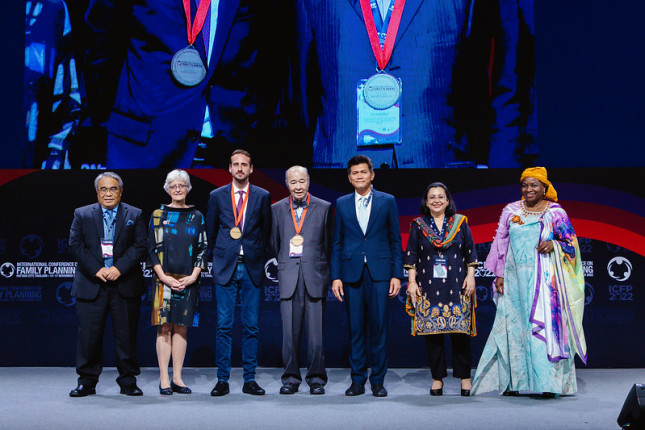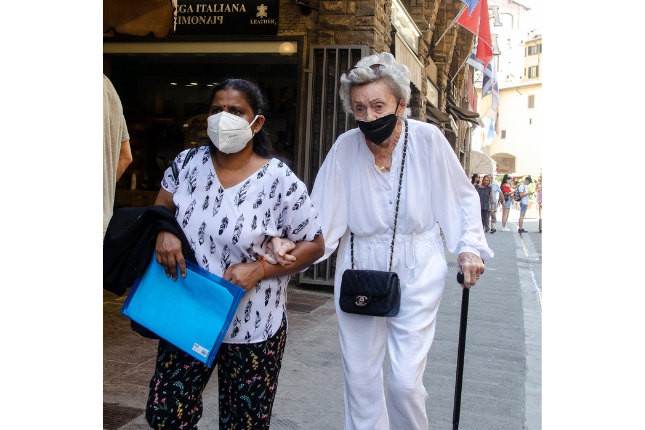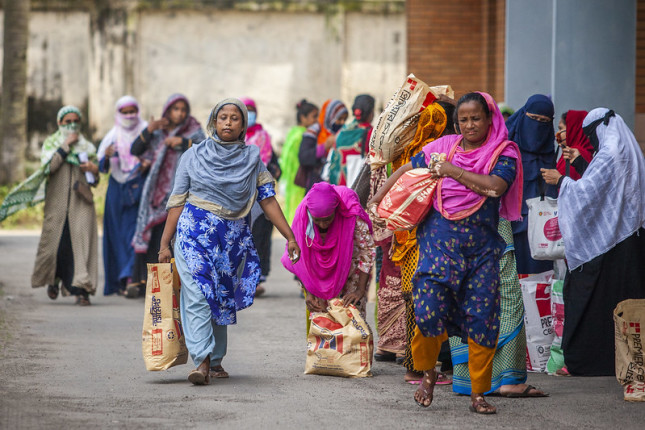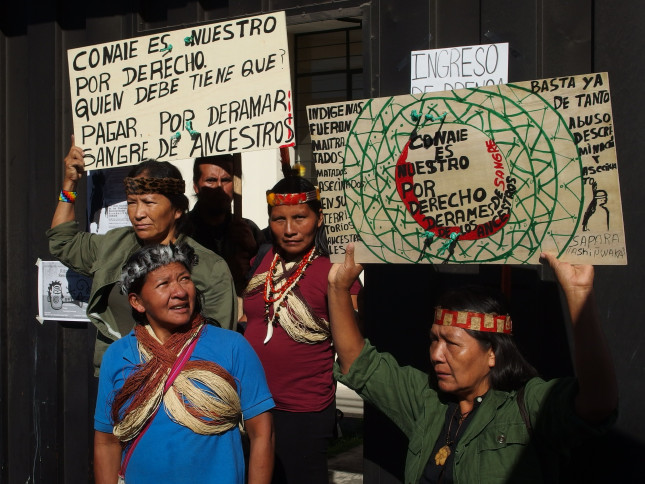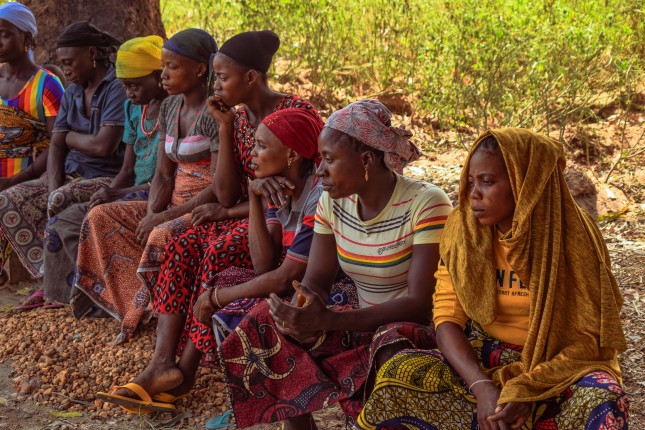-
Connecting the Dots: Gender Equality and Sexual and Reproductive Health and Rights
›
In today’s episode of New Security Broadcast, Sarah Barnes, Project Director for the Wilson Center’s Maternal Health Initiative met with Bridget Kelly, Director of Research for Sexual and Reproductive Health and Rights at Population Institute to discuss the launch of Population Institute’s new report: Connecting the Dots, Sexual and Reproductive Health and Rights as Prerequisites for Global Gender Equality and Empowerment. On the episode Kelly, lead author of the Connecting the Dots report, shares findings from the report on the importance of the Sexual and Reproductive Health and Rights (SRHR) agenda, how SRHR leads to gender equality, the power of and need for increased U.S. investment, and policy recommendations to fully realize the SRHR agenda and improve gender equality and empowerment.
-
Sexual and Reproductive Justice: A Vehicle in Progress
›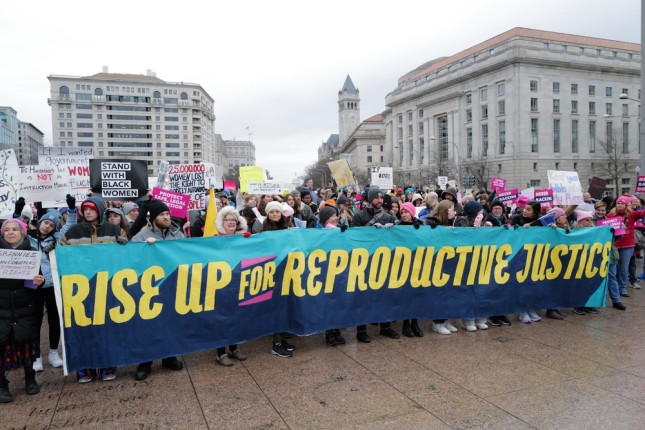
The pace of change towards advancing sexual and reproductive health and rights is piecemeal and far too slow, said Dr. Natalia Kanem, Executive Director of the United Nations Population Fund (UNFPA), at a recent panel hosted by The Columbia University Global Health Justice & Governance Program (GHJG), in partnership with UNFPA, Columbia World Projects, and the Ford Foundation. The event launched the November 2022 report, Sexual and reproductive justice as the vehicle to deliver the Nairobi Summit commitments, published by the High-Level Commission on the Nairobi Summit on ICPD25 Follow-up.
-
Planning, Pleasure, and Progress: How ICFP 2022 Advanced the Family Planning Dialogue
›
The sixth International Conference on Family Planning (ICFP) held in Pattaya, Thailand in November 2022 offered an important reason for celebration: tens of millions more people are using a modern method of family planning now than were doing so when the first ICFP was held in London ten years ago. How has this happened? One key reason is that governments, corporations, non-governmental organizations, and donors globally are taking steps to advance reproductive freedom through providing voluntary family planning.
-
Old Dangers, New Modes: Climate Change and Human Trafficking
›
For thousands of years, natural factors like rainfall and temperature helped determine the fate of economies and societies. For thousands of years, humans also engaged in human trafficking and kept one another as enslaved people. But as human prosperity increased exponentially beginning in the 19th century, it may have seemed that such concerns were relics of the past.
-
New Global Health & Gender Policy Brief: Migrant Care Workers and Their Families
›
Migrant care work is a key component of the ongoing global care crisis. The global care economy is critical to overall economic growth, and also affects gender, racial, and class and caste equity and empowerment. Caregiving is also the fastest-growing economic sector in the world—projected to add 150 million jobs by 2030. Global societal changes, like low birth rates, demographic aging, and an increase in female labor force participation, are basic drivers of the continued growth of this sector. But because in many cultures care work is considered “instinctive” for women—a type of work not requiring skill—it has remained virtually invisible, unpaid or underpaid and unregulated. It is also often stigmatized, especially when relegated to already marginalized and underrepresented populations.
-
Whisper Networks in a Wider World of Oppression
›
Abortion restrictions may create obstacles for legal access, but they do nothing to eliminate the need for life-saving reproductive healthcare. And when there is a lack of licit opportunities to obtain that care, patients find pathways to get it through alternative networks.
For instance, after the U.S. Supreme Court’s Dobbs v. Jackson decision in June 2022 reversed a decades-long precedent protecting the constitutional right to an abortion, social media and online forums were filled with reactions and resources alike. Among these interventions were viral posts circulated offering to host anyone going on a “camping” trip in a state with legally protected reproductive rights. These “camping trip” posts alluded to a willingness to aid and abet individuals traveling for abortions in states with legally-protected access—and they captured the complications and conflicts embedded in these responses to the ruling.
-
Buen Vivir in Ecuador: An Alternative Development Movement for Social and Ecological Justice
›China Environment Forum // Guest Contributor // Vulnerable Deltas // December 8, 2022 // By Yiran NingEarlier in 2022, Ecuador’s capital was left “virtually paralyzed” after some 14,000 people, mainly Indigenous Ecuadorians, participated in 17 days of sometimes violent nationwide protests. The actions forced the Lasso government to the negotiating table for a 90-day dialogue with Indigenous leaders. By early September, the parties signed a temporary moratorium on the development of oil blocks and the allocation of new mining contracts. -
Women with Disabilities in Nigeria’s Mining Industry: Discrimination and Opportunities
›
Women and girls with disabilities worldwide are subject to multiple forms of discrimination—a fact that the 2022 International Day for Persons with Disabilities brings into sharp focus. Yet while all people with disabilities (PWD) face exclusion and widespread stigma, women face the additional burden of exclusion from full participation in economic and cultural activities. Both forms of discrimination result from the collaboration of outdated laws and prevalent societal stigmatization.
Showing posts from category human rights.



